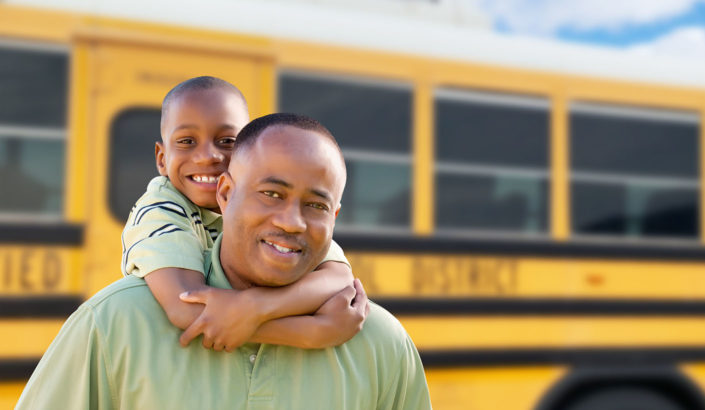What Are They?
Researchers have found that the key to making the family-community-school relationship a success is by considering it a partnership of equals. In other words, educators and families from all backgrounds are seen and valued as experts in a child’s education. And community members are viewed as helpful contributors and supporters of schools.
This partnership is built on shared values and emphasizes the strengths that all stakeholders bring to the table. The trust and respect that is fostered helps to cultivate a sense of belonging in the school community among students and their families, which in turn creates a caring school climate.
A school dedicated to building strong partnerships with families and communities asks families at every parent-teacher conference about their expectations for their child’s education. In addition, they honor the cultural backgrounds of families through potluck dinners, whole school celebrations, and by providing opportunities for families to share their stories about their own educational experiences with teachers, students, and the whole school community. Schools welcome community organizations to these events and invite them to participate and share their knowledge and resources about things like after-school programs, arts and athletic events, and volunteering opportunities.
Positive school-family partnerships can also help cultivate students’ social and emotional well-being through methods that build relationships and through practical hands-on ways for families to become involved in their child’s education.
Relationally, schools can build strong partnerships with parents through two-way communication, by collaborating on what’s best for each student, and cultivating positive relationships between teachers and parents.
A middle school encourages school-family relationships by asking parents at the beginning of the year for their preferred method of communication, e.g., text, email, phone, paper. Teachers then use those preferences to create personal and classroom protocols for communicating with parents.
Practically, offering families methods for reinforcing social and emotional skills at home and suggesting ways for caregivers to partner with teachers can improve students’ well-being.
An elementary school that is interested in adopting an SEL program forms a committee that includes family members of students from a variety of cultural backgrounds, and they provide input on the relevance and/or cultural responsiveness of particular SEL skills. After choosing a curriculum, the school regularly texts or emails SEL tips to families so that they may reinforce the SEL skills at home. Schools also invite all families to give feedback to the teachers about the effectiveness of the skill and the relevance to their families’ background.
Schools can also engage community-based organizations such as businesses, colleges, religious organizations, libraries, and social agencies, to offer programs that develop students’ strengths and social-emotional skills.
To cultivate students’ civic engagement, a high school partners with local businesses, the city council, and libraries to create opportunities for students to get more involved in their communities. During students’ advisory meetings every week, they discuss the partnership challenges that come up for them and learn valuable social and emotional skills to help them handle these challenges.
Why Are They Important?
It takes a village to raise a child, and science is proving this. Here are a few findings:
Students do better in school when their families are involved in their education.
- Students whose families participate in their education have higher levels of attendance, homework completion, academic outcomes, and graduation rates.
- Students’ attitudes towards school, self-esteem, and behavior all improve when their families participate in their education.
- When schools suggest practical ways that families can support their children’s learning at home, students do better.
- Families from all cultural backgrounds, education, and income levels can positively influence student success.
Family-school partnerships improve students’ well-being.
- A meta-analysis of 117 studies found that when families are invited to participate and partner with schools in their children’s education, students’ mental health and social-emotional outcomes improve.
Family-community-school partnerships that focus on building relationships, especially with diverse families, create the conditions that support student achievement.
- School factors that cultivate these strong relationships include a welcoming attitude that encourages involvement and a focus on the specific needs of families and the community.
- Effective partnerships are strengths-based and power is shared among all stakeholders.

Are you ready to build a kinder, happier school where everyone belongs? Join Greater Good Educators! Explore the science of well-being in a supportive community of educators from around the world. Registration is now open for the 2025-2026 school year!





